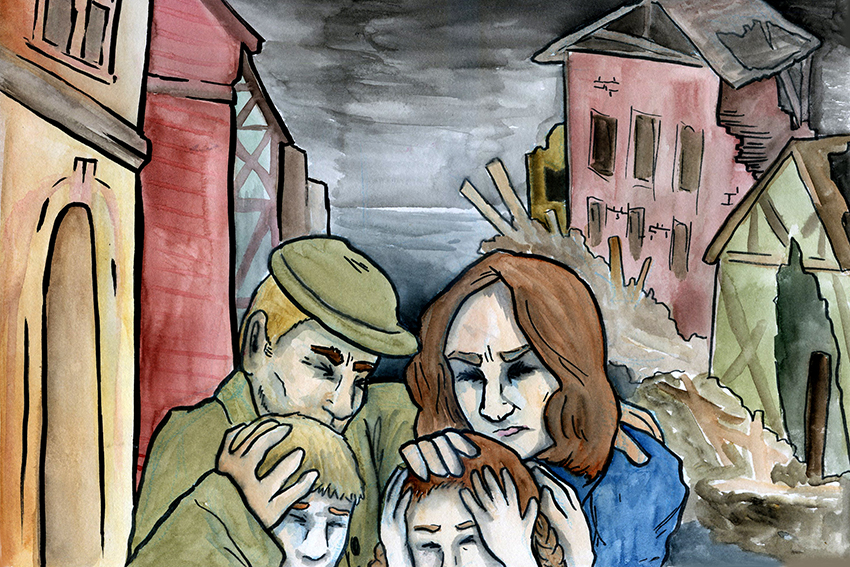In a study published last month, an international team of researchers reviewed the mental health of over 33,500 German citizens to investigate the stereotype of German angst as a result of the World War II bombings. The researchers discovered that, against typical assumptions, experiencing traumatic events as a nation may create a more resilient population.
Germans are sometimes stereotyped as anxious and worried in a phenomenon described as “German angst.” But P. Jason Rentfrow, an author of the study and a University of Cambridge psychology reader, said this stereotype isn’t entirely valid. “Clearly, we need to be careful about national stereotypes,” Rentfrow said. “Germany didn’t stand out as high in anything resembling angst compared with other countries.”
According to the study, Germany ranked 20th, 31st and 53rd for depression, anxiety and neuroticism respectively in a comparison with 107 other countries. Other countries that experienced trauma because of warfare, such as Japan and Vietnam, did not score highly, supporting the researchers’ new findings.
Martin Obschonka, an author of the study and associate business professor at Queensland University of Technology, said one possible explanation for these findings is that the major destruction of cities could have made the local
population “tougher.”
“This (conflict) served as a factor for the remaining residents to pull together and persevere,” Obschonka said.
Samuel Gosling, an author of the study and psychology professor at UT-Austin, said the implications of their research are far-reaching.
“What this research shows is that the regional distribution of today’s personality traits have roots that stretch back decades, or even longer,” Gosling said.
Gosling added that psychologists know from previous research that traits particular to regions have all kinds of long-term consequences in terms of things such as the economy, crime, social behaviors and health.
The research would have strong implications for war-torn cities in the Middle East, such as Syria, and for future inquiry.
“It is likely that we’ll be seeing the effects of the ongoing traumatic experiences in the Middle East for many years to come,” Gosling said.
Undergraduates accepted the research findings, using examples from their personal life. Biomedical engineering junior Tyler Stern said war brings out the resilience in people.
“People show true courage during hard times, and this spirit is passed down through family, through generations of citizens,” Stern said.
Rentfrow said a possible explanation for this phenomenon is that conflict in territories can offer citizens a new way to look at stress in their personal lives.
“We’ve seen from other studies that when people experience difficulties in life, (it) can provide them with a broader perspective on things and perhaps make more trivial stresses seem unimportant,” Rentfrow said.















